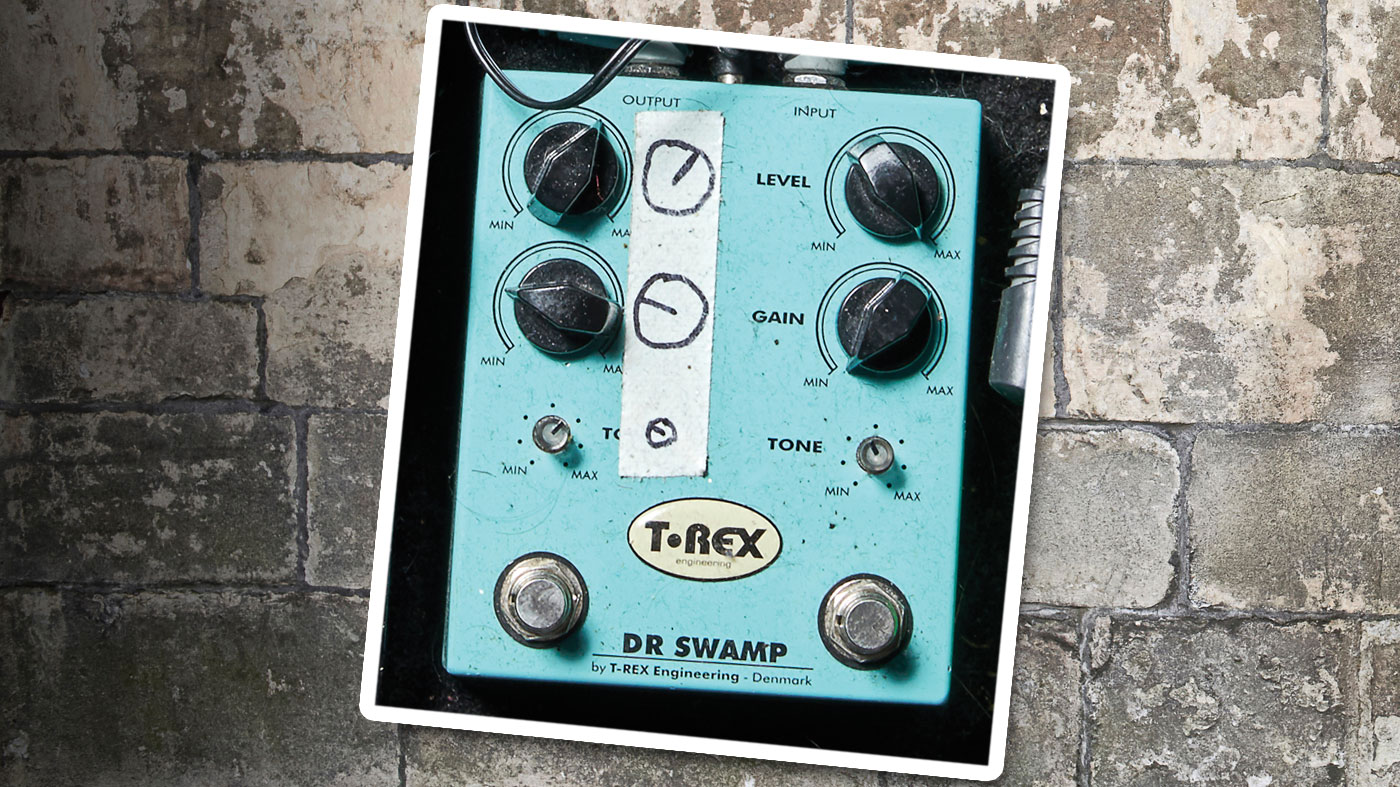Lonely The Brave on infinite reverbs, post-rock backgrounds and Things Will Matter
Mark and Ross talk tone

Introduction
Lonely The Brave are bringing their guitars to the fore on their second album and it’s a glorious sound - we talk about the dynamics, disappointments and delay pedals behind its creation with Mark Trotter and Ross Smithwick…
Uh oh, it’s the difficult second album… it’s tripped up many a promising band through rock history. We certainly wouldn’t have wanted the task of following up The Day’s War; Lonely The Brave’s 2014 debut was a long time waiting for a release due to record label issues, but when it finally surfaced it was the best British rock debut in years.
The anthemic rush of songs such as Backroads and Trick Of The Light connected with the gut like great guitar bands should, but they were also bringing tones together in a surprisingly fresh way; blending the visceral spirit of early Pearl Jam with the towering compositions of post rock bands. Mark Trotter’s guitar vision worked - and in David Jakes they had a vocalist offering a startling conviction, but no desire to follow the cocky frontman cliches.
They signed to a major label, Mark became a dad, gained a permanent guitar partner in the band with the addition of Ross Smithwick and they hit the road… everything was rosy. Except it doesn’t often work out that way in the music industry. Which is maybe why the Ross Orton-produced follow-up album, Things Will Matter, resonates with so much darkness and hope; Mark and Ross are reflecting Jakes’ heart-in-hand delivery with pile-driving overdrive and brooding layers of reverb.
It would have been easy for LTB to smooth their edges for their second album, but instead they’ve come out guitars blazing…
Don't Miss
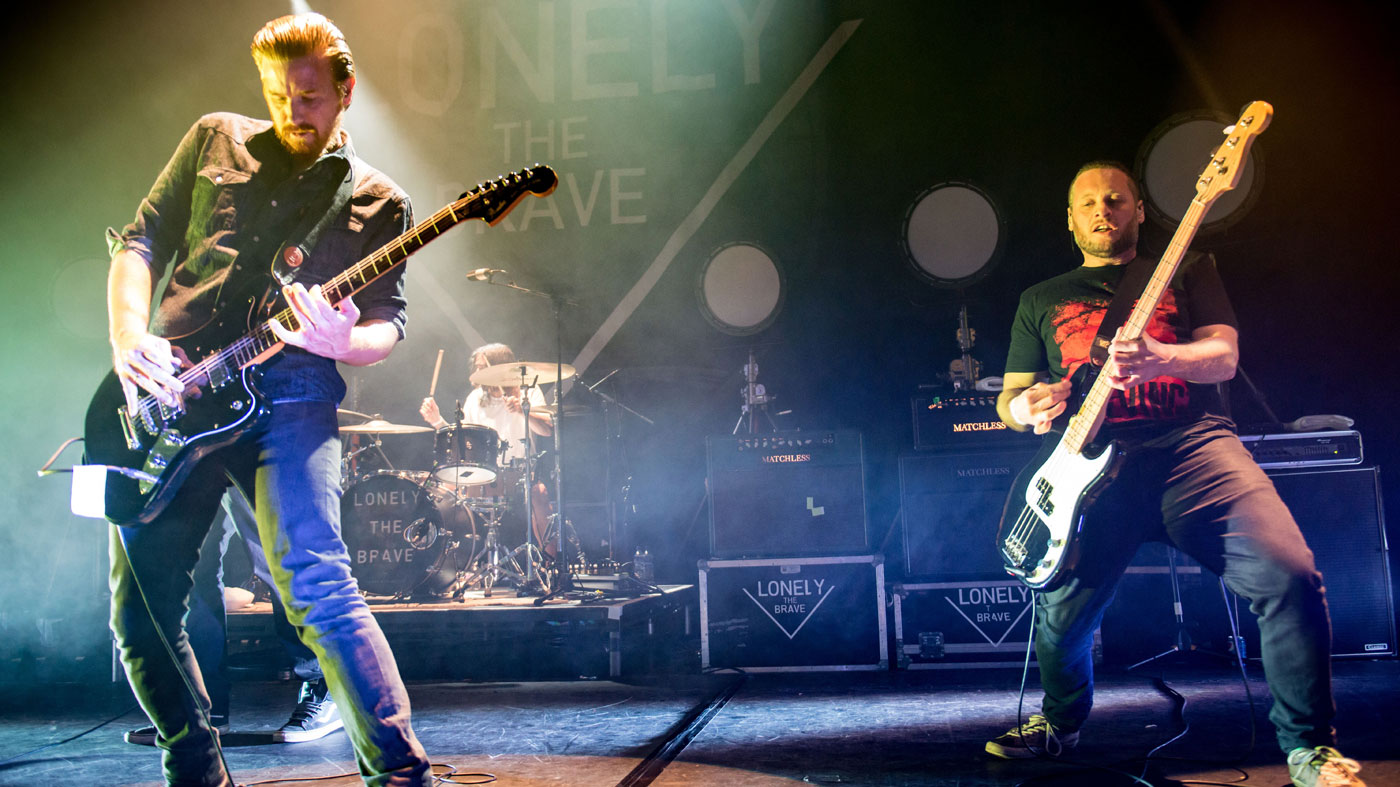
Read the statement
This album sounds like a statement…
Mark: “That was the idea. We’ve had a very interesting 18 months as a band to be honest, and that’s definitely had an effect on the sound. It’s the way the industry is. So we wanted to come back with a statement. That’s why Black Mire was the first track that came out and Dave just being there [alone] in the video, which just doesn’t happen.”
There’s someone who sits higher up the foodchain, looks at the spreadsheets and makes decisions
Ross: “If it’s heavier, it’s heavier and the same with the melodic side. Everything’s up to 10 on this record.”
Mark: “It goes to 11!”
So have there been things about the music industry in the last 18 months that have surprised or disappointed you?
Mark: “Disappointed, not surprised! Disappointed is one way to put it, definitely. Without going into huge detail, we swapped labels and bits and pieces. You get told one thing and another thing happens… But to be honest it’s probably worked out in our favour.
“We’re somewhere where we have complete artist control and the support of people who really believe in what we do. And I’m not saying the people on the old label didn’t, they definitely did, but unfortunately in those kind of scenarios I guess there’s someone who sits higher up the foodchain, looks at the spreadsheets and makes decisions.”
Ross: “But with everything that happened, I wouldn’t change it really. Working with the previous label has got us to where we are now, put us on this platform and it’s a great place for us. We’ve got a great team and full control of what we do. It’s exciting, because it’s in our hands.”

Dark matter
There are plenty of those extremes you mentioned on this record, some really dark moments such as Black Mire, but also some hopeful, upbeat tracks, too…
Every song is deeply personal, even more so than the first record. It’s no-holds-barred
Ross: “I think that sums us up pretty well. That’s what people hold on to. Too much of either would make it less special. You need sadness for the hope to mean anything…”
Mark: “We all write about real life events, especially from Dave’s point of view, lyrically. Every song is deeply personal, even more so than the first record. It’s no-holds-barred from his point of view, hence the title of the record, Things Will Matter; it’s all the things that have shaped us as individuals and shaped us as a band. Everything from day dot until now, it all has an effect and it all matters.”

Space exploration
Was there a period of adjustment writing with two guitar parts in mind but leaving enough space for David’s vocals?
Everything I’ve always done as a guitarist and we as a band is to support and carry Dave’s vocal
Ross: “Definitely, a lot of times when we know there’s going to be lead parts over rhythm sections and we know there’s going to be vocals, we sometimes leave it until after Dave’s done the vocals to finalise the recording. His vocals are the most important thing and his melodies are so strong that you don’t want anything to clash with that.”
Mark: “That’s right, everything I’ve always done as a guitarist and we as a band is to support and carry Dave’s vocal. I’ve said it before but it’s a vehicle for his lyrics and his voice. It’s a supportive thing.”
Ross: “At the same time it’s good to add little intricate bits where you can. As long as it doesn’t clash. And there’s definitely been some times when we’ve said, ‘Nah, that doesn’t work, take it out.’”
Mark: “Yes, I’m sat here saying it’s all about supporting and I’ve got a baritone [a Jag used on Black Mire live] and two amps!”

Tonal palette
You took a lot of gear into the studio - did you treat it like a palette, being able to use certain gear for specific tonal parts?
I know how that guitar sounds with that amp and that’s what I’m going to use because that’s what I want it to sound like
Mark: “Absolutely, I guess some people get intimidated having those options but if you know your gear and you know what you want, it’s quite easy to move around and get what you want. The one thing that gets to me is people see a certain piece of gear or a certain guitar and think it sounds a certain way and it doesn’t. To me anyway.
“I could pick up a certain guitar to play a certain part and someone might say, ‘No you need this guitar’. But I know how that guitar sounds with that amp and that’s what I’m going to use because that’s what I want it to sound like. I’m not saying I was always right, because I wasn’t, but that’s the fundamental thing for me.
“My Les Paul Junior is the prime example. People just assume it’s going to be this thin-sounding little guitar and it isn’t. It’s huge and it sounds monstrous. But it can also be really smooth and gentle. It does everything. I like to play with toys!”
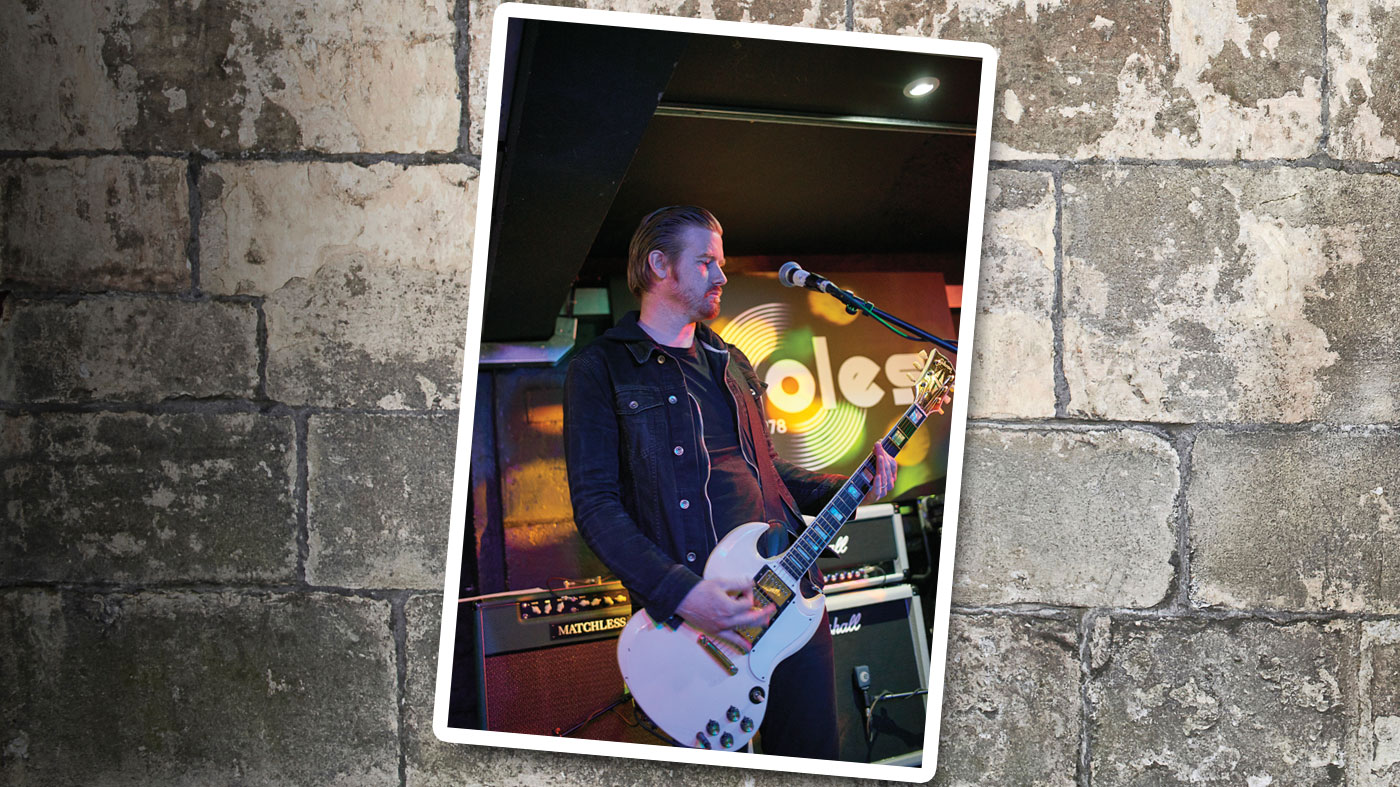
Swap shop
That’s a good point that’s often overlooked; people really need to know the capabilities of their gear before they record with it…
Swap around... when Ross plays my guitar he sounds completely different than I sound playing it
Ross: “Know their gear and know their songs as well. We were in a good position in that our songs were fully formed so we had a good idea of what we wanted the parts to sound like already. So we didn’t have to spend too much time mucking about with sounds.”
Mark: “It’s always how we’ve done it, just playing and playing until we’re happy with it. And the other thing I would say to people who don’t perhaps have as much gear as we’re lucky enough to have - because we’ve spent out lives begging, stealing and borrowing it - if you’ve only got a few bits between you, swap around.
“Because when Ross plays my guitar he sounds completely different than I sound playing it. If you’re tracking and you only have two or three guitars swap between you because it makes massive sense. We were playing each other’s stuff all the way through recording.”

Defining sound
You’re really driving the amps on songs such as Dust & Bones and Radar but the inherent character of the guitars isn’t getting lost, what’s the key for you in finding the balance?
Mark: “For me it’s about not using as much drive as you probably think you do. Some people might think a part needs to be really saturated and you just end up with a horrible thin sound with no definition.
If you’re playing it right, that sound is going to be bigger for being clearer and having that definition
“I guess it’s about playing the parts well, too, and knowing you’re not thinking you’re standing on top of a mountain playing huge riffs, if you’re playing it right, that sound is going to be bigger for being clearer and having that definition, rather than just cranking everything up and thinking you’re a god. Because you’re not [laughs].
Ross: “If you know what you want it to sound like in your head, spend time tweaking it. When I was younger I turned everything up to max, but it’s about the way you play it as well. Dig in more on the heavy bits.”
Mark: “With smaller venues it’s kind of weird because monitoring can’t be as big or powerful as you’d like, you kind of have to take a step back. When we were doing pre-production the other day, there were parts where you realise, actually I’ve been using way too much drive for this section because all you’re doing is trying to boost it onstage so you can hear yourself.
“Trust yourself - you know your sounds and know that’s the sound you need so just go with it. Don’t just kick something in because you want to hear yourself more, because you’ll ruin the dynamics.”
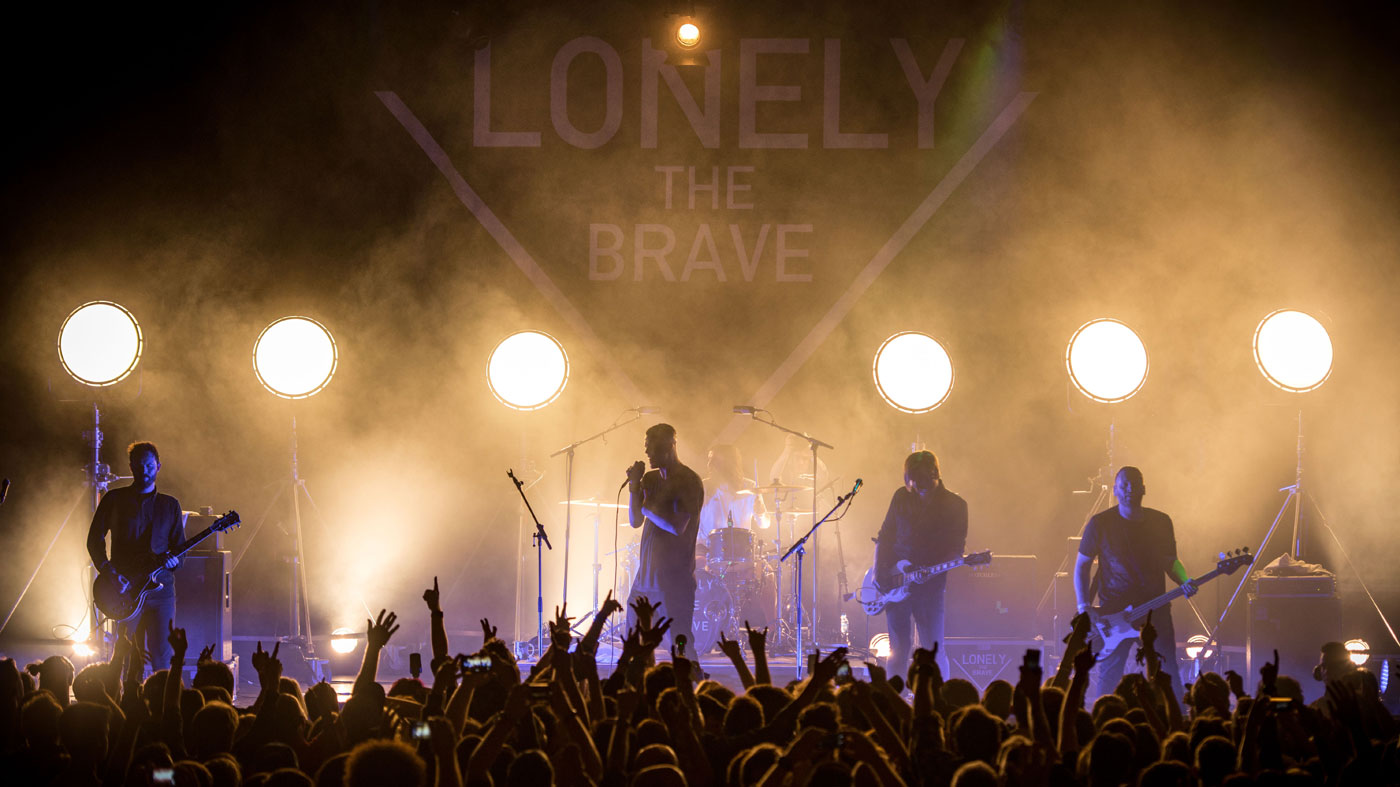
Infinite tone
Delay and reverb are a crucial part of the atmosphere in a song like What If You Fall In, can it become challenging with two players in the mix?
Mark: “It can be difficult. We both use a lot of reverb, especially on the new stuff. More reverbs than delays, actually. So it can get swampy but to be honest, that’s when we want it to be swampy.
We know our gear pretty well and what we want from it but it’s one of my favourite things ever, infinite reverbs!
“We know our gear pretty well and what we want from it but it’s one of my favourite things ever, infinite reverbs! It’s like that sound at the end of Inception isn’t it!”
Diamond Days especially sounds like it was very much inspired by delay…
Mark: “It was. I got an Empress Superdelay and I was sitting around in my old flat. I had a little Marshall Class 5 and the first thing that came out pretty much was that riff. I thought, that sounds cool.
“I recorded it down and sent it across on the band email, which is what we used to do all the time, and a couple of days later it comes back [from Dave] with these lyrics on it. But to be honest, it was only the first verse and ‘Diamond Days’ bit that Dave did and then we just left it. We didn’t do anything with it for years and then we wondered, ‘Why didn’t we ever finish that song?’ So then we decided to go back and finish it off.
“That’s how it used to be, writing bits and pieces and then pinging them across. They’ll come back a couple of days later and he’ll empty his heart all over them. If it came back you knew that he liked it, effectively. Other things take their shape in the rehearsal studio but the catalyst can start that way.”

Instrumentals... with vocals
There are textures and tones in your music that have a post-rock vibe, but do film soundtracks influence the music, too?
Mark: “I adore film scores. But I think most of us come from a post-rock background - Explosions In The Sky, This Will Destroy You… bands like that. It was Mo [Gavin Edgeley, drums] that got me into Explosions back in the day. Their new record is bonkers!”
When we first started with the band, all I wanted to be was in a post-rock band with a singer!
It’s surprising that bands with vocals haven’t taken a sonic leaf out of that post-rock world…
Mark: “You are honestly the first person to say that, because when we first started with the band, all I wanted to be was in a post-rock band with a singer!”
Many of your songs end somewhere quite different to how they started, without that transition being abrupt. Was avoiding pop structures a conscious choice?
Mark: “I don’t know if it was conscious but it was always there. We liked songs that took you on a journey but it must have been there subconsciously. Again, it’s probably coming from post-rock music and film scores where there may be a theme running through it but they don’t tend to end up in the same place. That to me is way more exciting than pop songs. Though they have their merit as well, if the song needs to do that you should let it and you shouldn’t fight against that.
Ross: “The new album is more of a mixture of the classic song structure, if you will - there’s some straight up pop-rock tracks on this record - and there’s some absolutely epic things. Again, we didn’t really discuss it. It was just whatever a song needs to be the best that it can be. Some tracks just need a good old chorus!”
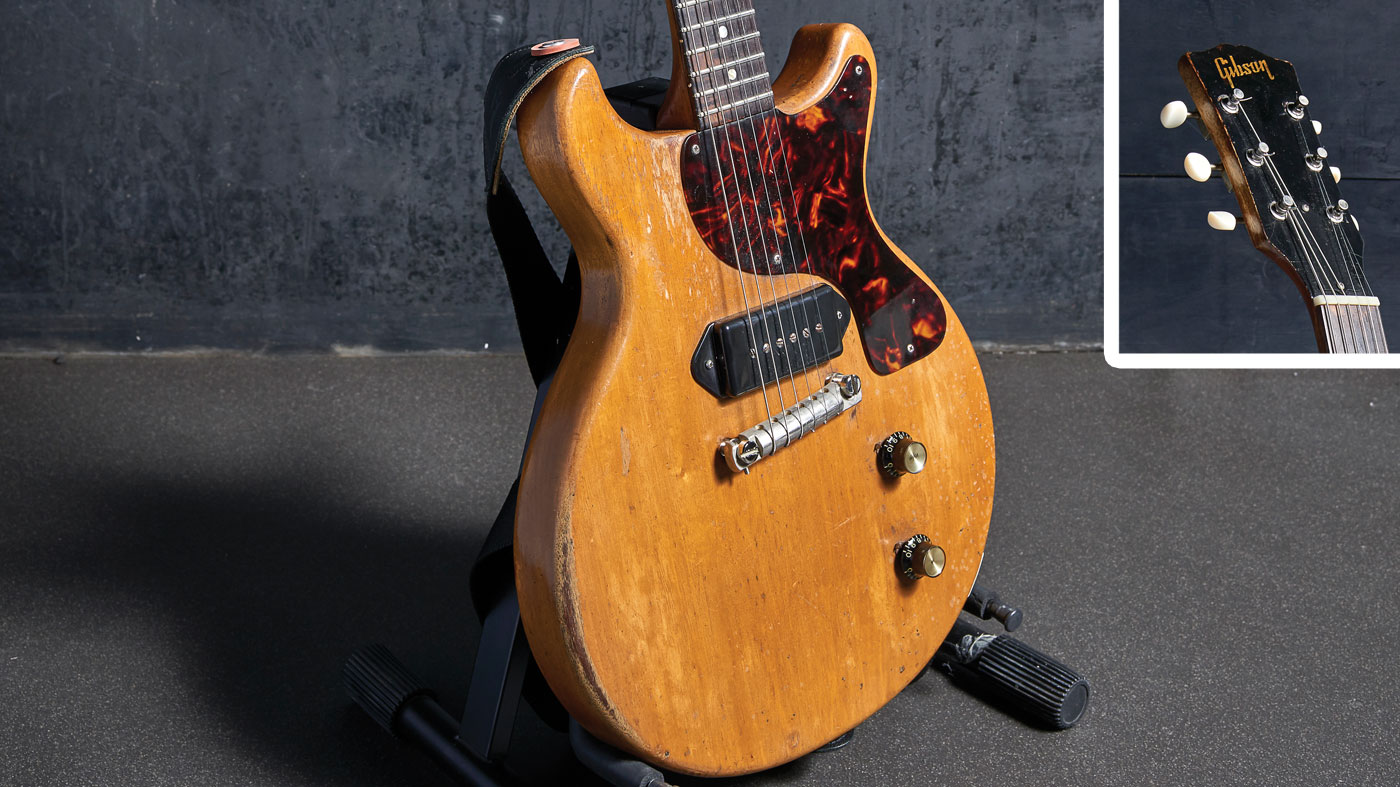
'59 Gibson Les Paul Junior
We poke our noses around Mark and Ross’s rigs and sniff out the key gear behind Things Will Matter
My friend Neil, who is an amazing tech, bought it with a really bad headstock repair and he broke it again and reset it
Mark: “I used this on the album, and I was playing it this morning and just had to bring it down to play it again! I bought it from my friend Neil, who is an amazing tech who’s worked with The 1975 and various others. He bought it with a really bad headstock repair and he broke it again and reset it. It actually had two pins holding it in before, it was horrendous - but he did a kick ass job. I wouldn’t be able to afford it otherwise.
“It’s stripped and battered but it sounds like a cannon. It’s loud. It’s had loads of changes, the pickup is original but the cover isn’t, 70s pots, stripped finish and I’m pretty sure it’s had a refret. The tuners have been changed. But it has to be played and it’s so light.”
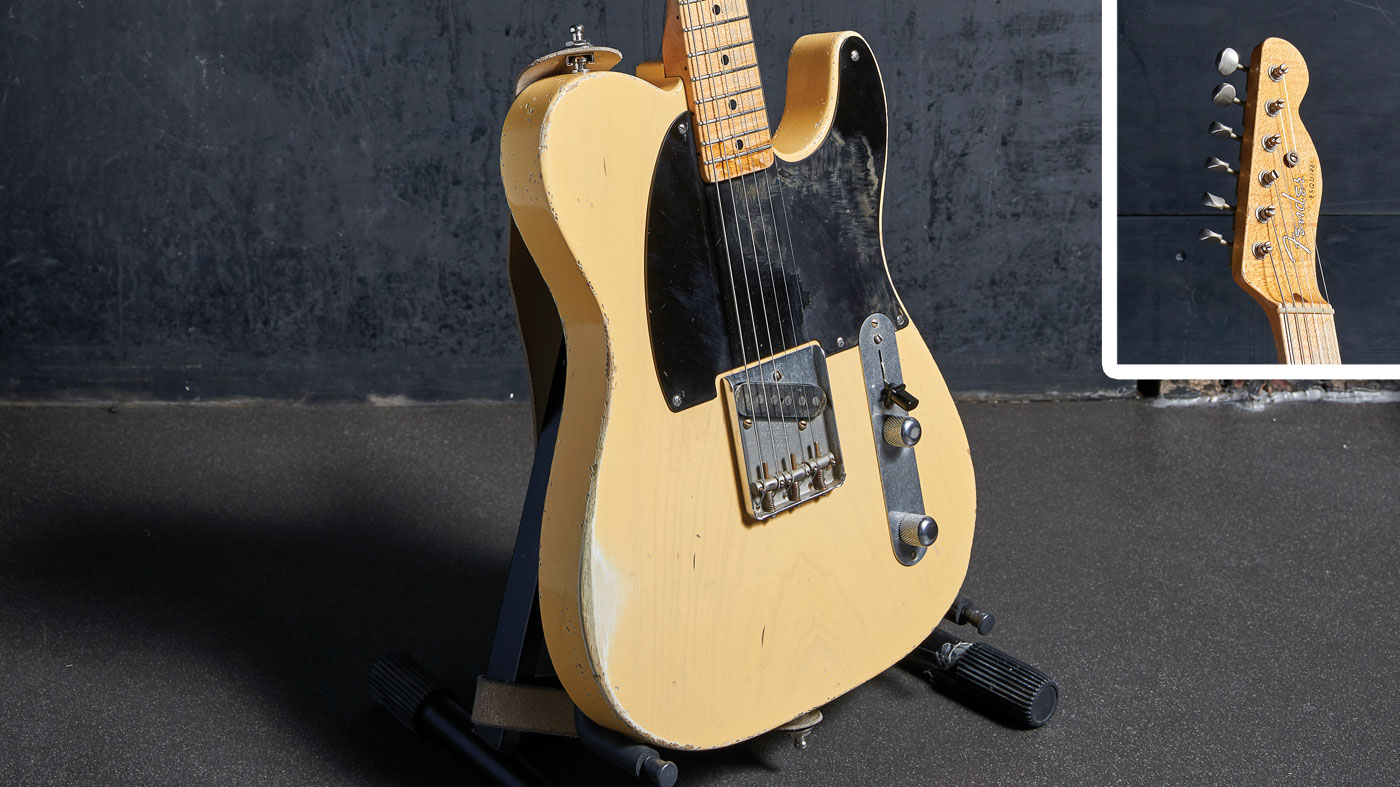
Fender Custom Shop Masterbuilt Stealth Esquire
Mark: “This is all over the record. It’s phenomenal. The neck on this is just the best thing in the world and it’s super light.
I tend to track with a big thick guitar like a Les Paul and then I’ll double track with this over the top
“I love the idea of the two hidden pickups but how usable they are live because of the volume decrease… hmm… not for my style of music, but that bridge pickup is amazing. I’ve got a thing for double tracking so I tend to track with a big thick guitar like a Les Paul and then I’ll double track with this over the top.
“It was the main guitar on Play Dead. The reason that I could afford it is the previous owner routed the front pickup for a humbucker. So you could Keef it if you wanted to.”
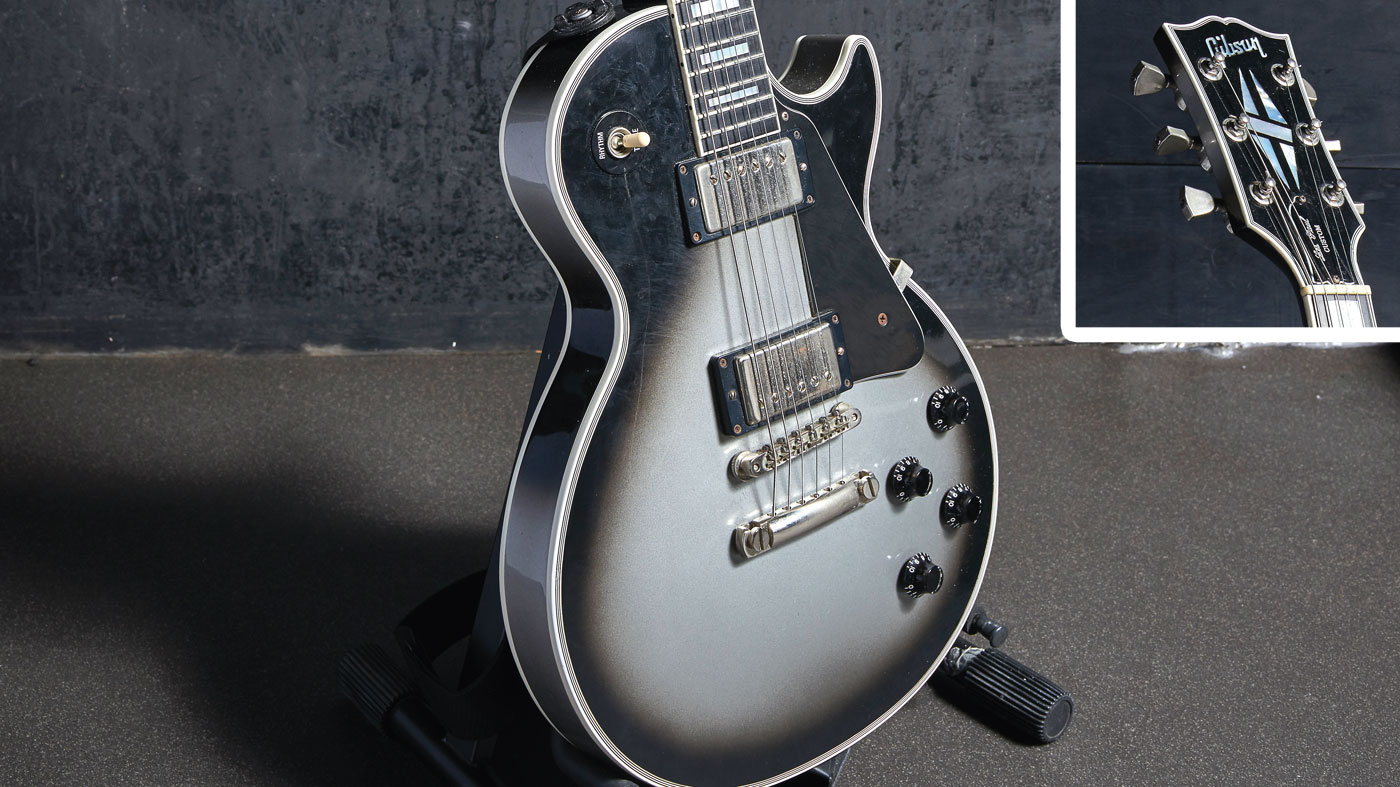
Gibson Les Paul Custom 2005
Ross: “I always wanted a Custom when I was a kid. And I ended up getting two. James Iha in the Pumpkins had a Silverburst and they were pretty much my biggest influence.
It was my first gig… real triumphant and on the last track I got a bit animated and it fell off the strap.
“This is my main one and the one I love with all my heart! The best guitar I’ve ever had and ever played. I can get it to sound cutting – almost like a Tele - but it also has a classic Les Paul sound. I got it when I joined the band and a few days later we did the Great Escape in Brighton. It was my first gig… real triumphant and on the last track I got a bit animated and it fell off the strap. The headstock snapped. Mark took it to someone he knew and you can barely see it. I’ve actually dropped it since, just for a tester!”
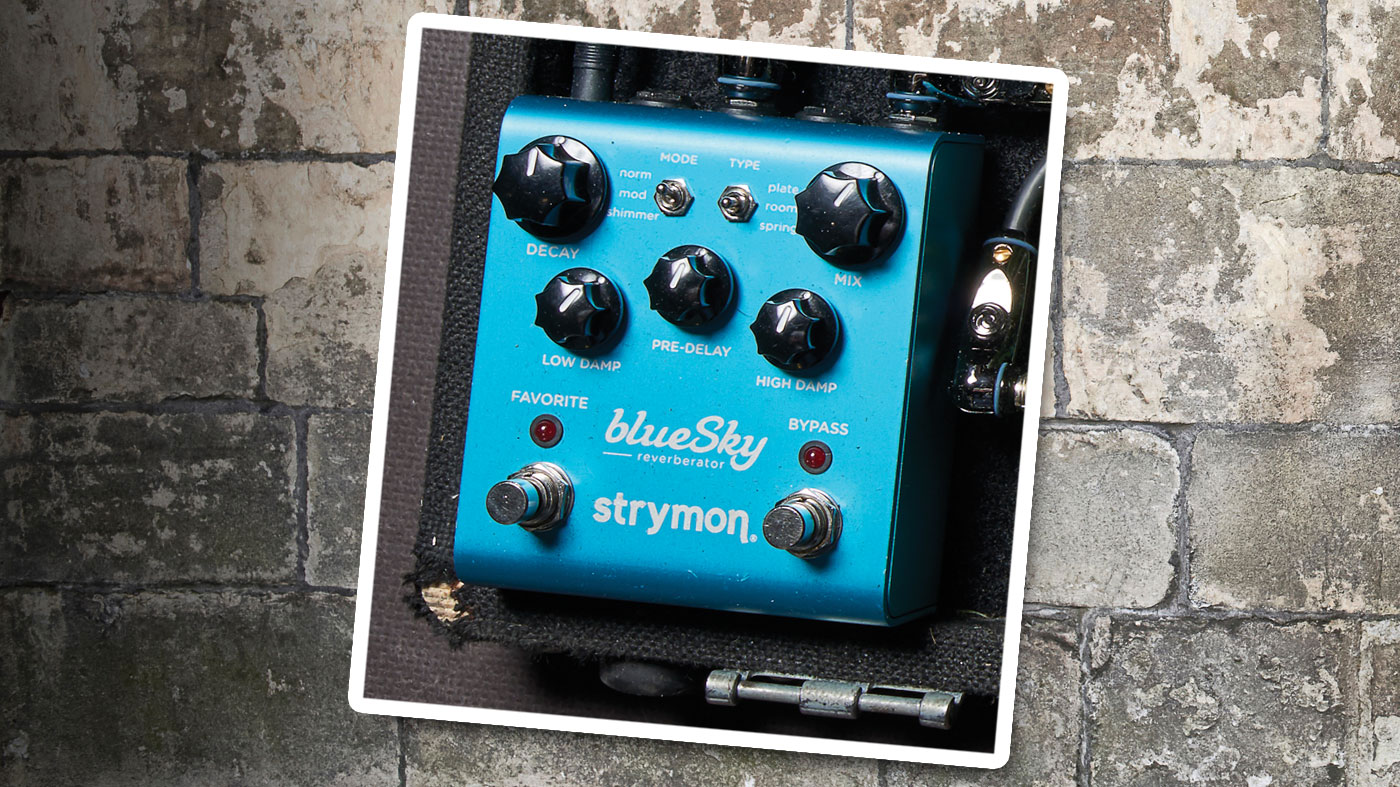
Strymon Blue Sky Reverberator
Mark: “It features quite a lot on the new album, because as soon as soon as you get one, you can’t stop using it! I’ve toyed with the idea of the BigSky but I just think I’d lose myself for years.”
Don't Miss

Rob is the Reviews Editor for GuitarWorld.com and MusicRadar guitars, so spends most of his waking hours (and beyond) thinking about and trying the latest gear while making sure our reviews team is giving you thorough and honest tests of it. He's worked for guitar mags and sites as a writer and editor for nearly 20 years but still winces at the thought of restringing anything with a Floyd Rose.
